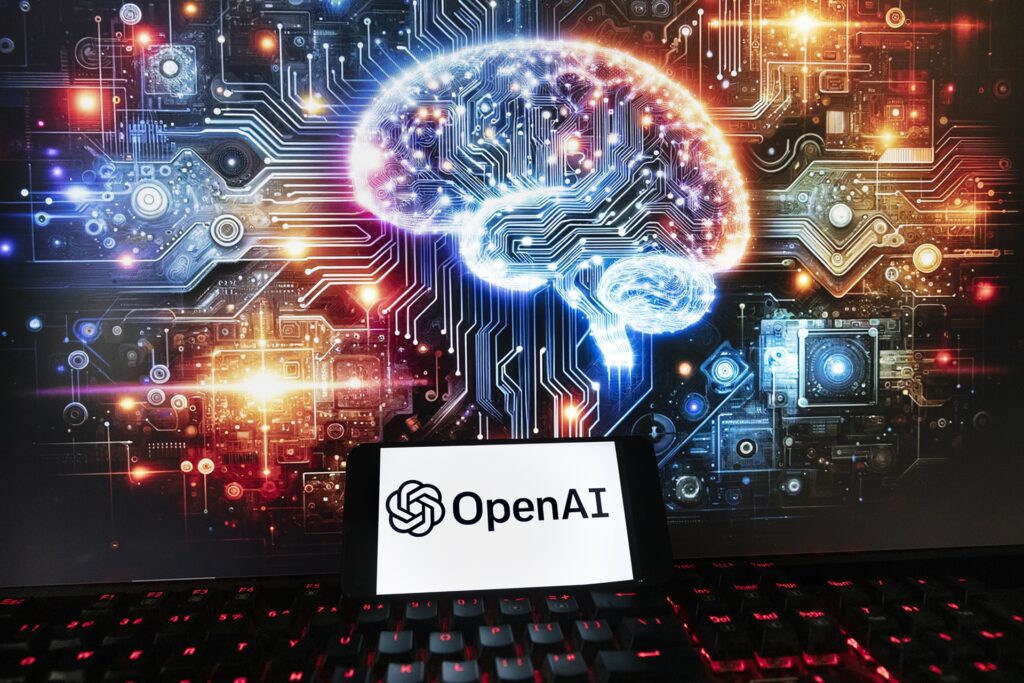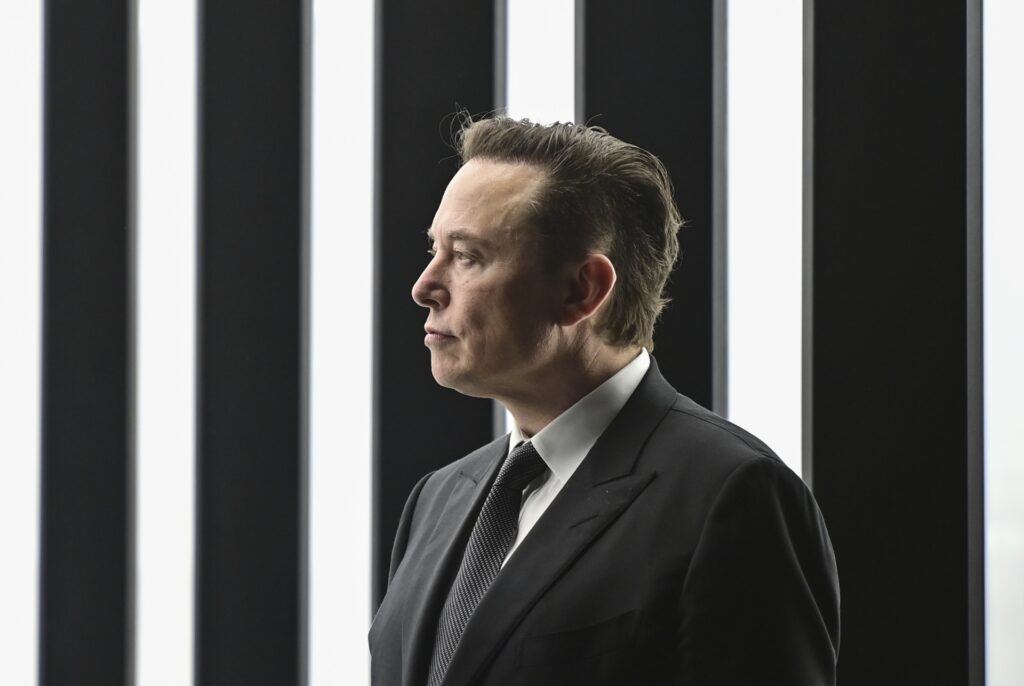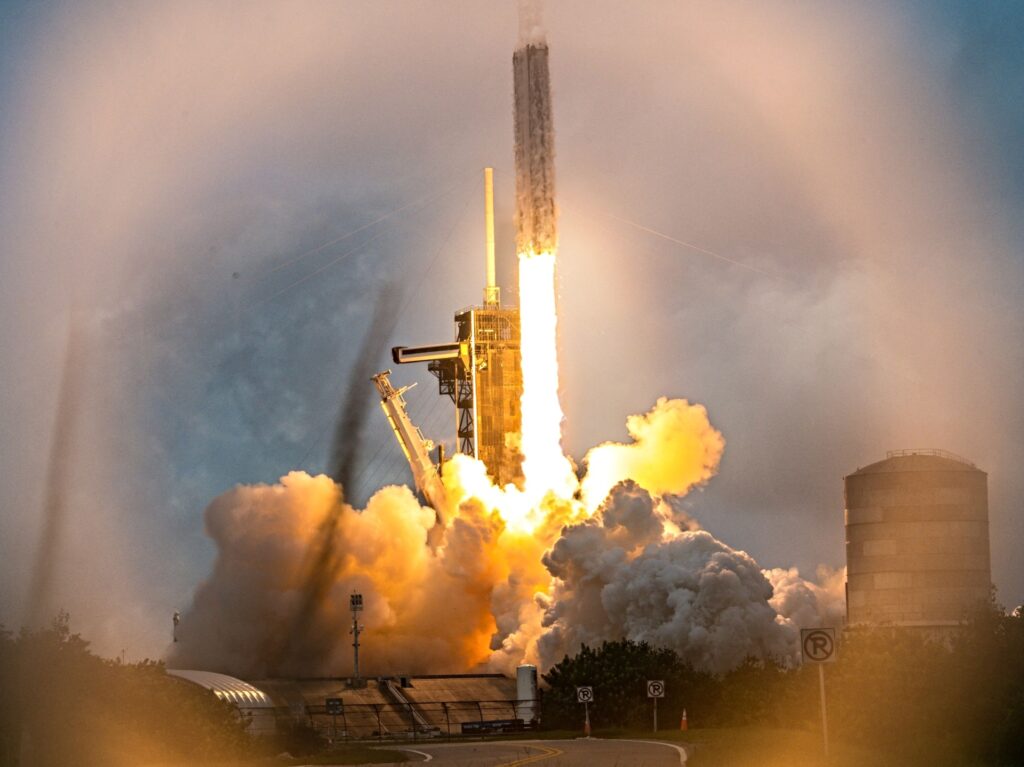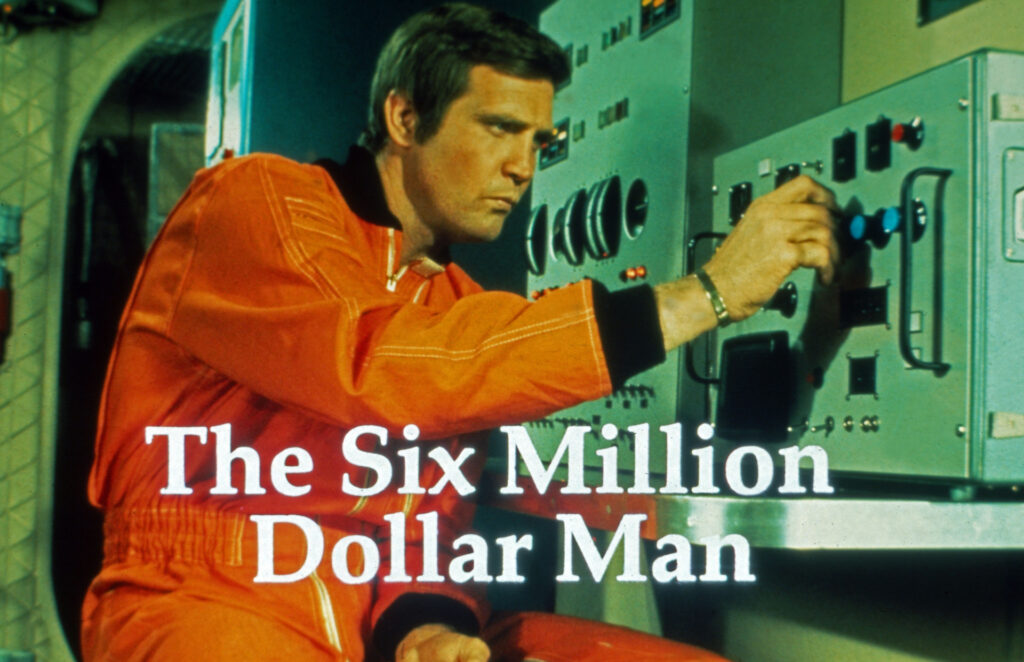Baby Boomers will remember the TV series The Six Million Dollar Man, which ran on ABC from 1974 to 1978. (Younger audiences might see reruns on Peacock or YouTube.) It was a big-dollar and high-tech show for its time, imagining the main character having “bionic” limbs and a new eye.
There’s been inflation since, both in money and technology. Those six million dollars are now worth about $41 million. Machines, too, have advanced. Today, instead of a superhuman eye, we have AI. And now, riding this ever-upward tech trend, we have the Seven Trillion Dollar Man.
That would be Sam Altman, CEO of OpenAI, the company that burst into prominence in late 2022 with ChatGPT. Just in February, the Wall Street Journal reported that Altman intends to raise $5 to $7 trillion for his next venture. The dollar figure is not a typo; it’s “trillion” with a “t.” Does that seem like a lot of money? Why yes—it’s a quarter of the United States’ annual GDP. But a 2023 report from Goldman Sachs puts matters into perspective, arguing that AI will add $7 trillion to the global economy in the coming decade. After that, well, the projections reach practically infinity.
To be sure, the recent folly of Google Gemini—all those laughably politically correct images—has turned AI into something of a punchline right now. Google’s rollout of its AI was the worst debut for a new thing since the Edsel or New Coke—or maybe even the Titanic.

Google Gemini’s black George Washington (Google Gemini)
Yet underneath the mockery is a genuine techno-transition. Soon, the planetary economy will be woven with AI, just as electricity and the internet now provide its warp and woof. Adding up all that new tech, there’s a quadrillion or so dollars in play, just during the remaining lifespan of a Baby Boomer. To run all this AI, graphics processing units (GPU), better known as computer chips, are needed. Lots of them.
But is Altman the right person to make these chips? Showing good timing, he demonstrated his tech mojo, yet again, when his company released Sora, “an AI model that can create realistic and imaginative scenes from text instructions.” Some sample headlines register Sora’s stupendous impact: “New OpenAI product stuns users with its ultra-realistic videos”; “Sam Altman just reminded everyone why OpenAI is leading the pack”; “Insanely Powerful Text-to-Video Model ‘Sora’ is Here.” As The Daily Beast observes:
Technology like Sora holds the potential to not just disrupt industries like art and cinema, but completely obliterate them. No longer will production companies need to rely on actors, camera operators, gaffers, and the hundreds of other people who create the movies and TV shows we love. Instead, they can just type a few words into a prompt and get a full video.
There’s a lot more than $7 trillion worth of business action here, including the disruption of movie-making plans. Investors know that there’s also money to be made in “shorting” a stock (betting that it will fall) as well as the more familiar approach of “going long” (betting it will go up).
So for lots of reasons, investors are paying close attention to Altman. In fact, as an indicator of the trend already in progress, another company, NVIDIA, a California-based chip maker, has seen its stock rise more than 1,700 percent in the last five years; its market capitalization standing at nearly $2 trillion (that’s as much, by the way, as the entire Chinese stock market). No wonder most analysts say of the stock: Strong Buy.
Others, too, are moving into the same space; Masayoshi Son’s Softbank also wants to get big in chip-making, although it needs “only” $100 billion.
To be sure, Altman, Sora, and AI are plenty controversial. For openers, some AI is so woke it’s a joke. And sometimes, Altman’s ChatGPT simply goes kerflooey. Others say they’re all a ripoff of existing content providers and their copyrights. Still others warn that AI could be a “Skynet”-type humanity killer.

(AP Photo/Michael Dwyer, File)
So how do we manage these problems and risks? Elsewhere, this author has offered one tip: In the U.S., at least, AI should abide by the Constitution. That document has served us well for 235 years; there’s no reason it can’t guide us through the next 235 years. And so oversight and regulation of text-to-video AI is inevitable; the challenge, of course, is to balance safety with not wrecking the technology—but the Constitution is good at exactly that sort of balancing.

President Joe Biden during an event in the East Room of the White House in Washington, DC, on October 30, 2023. (Al Drago/Bloomberg via Getty Images)
Yet in the meantime, there are new issues to ponder: For instance, we’re entering a new age of capitalistic power. Baby Boomers in particular can recall that for the longest time, leftists proclaimed that socialism and/or communism were the “wave of the future,” and so it was necessary to get on the politically correct side of history. That is, applaud Stalin, or Mao, or Castro. You don’t hear much of that talk anymore because the few remaining communist countries—Cuba, North Korea, and Venezuela—are such hellholes that even an Ivy League professor has to notice.
As an aside, wokeness is not communist; it’s actually rather capitalist. Why? Because it’s woke corporations and richly endowed foundations that provide the money and media for DEI programs and ideology. Even leftists don’t bite the hand that feeds them.
So this is a pretty good time to be a capitalist — such as Altman, Elon Musk, Mark Zuckerberg, or the chiefs of Apple and Microsoft, the market caps of which hover around $3 trillion, each. Moreover, anyone invested in the S&P 500 has done well; its valuation has doubled in the last five years.
And you ain’t seen nothin’ yet. Musk has said, for years, that his life mission is to help humanity become an interplanetary species, that is, settled on Mars and elsewhere off Earth.

Elon Musk (Patrick Pleul/Pool via AP, File)
The achievement of “going galactic,” if it happens, is so enormous as to almost defy comparison. One analogy, of course, is Columbus’s landing in the Americas back in 1492. Those who discover a new world are going to be well remembered.
Yet we can see a key difference: Columbus, the daring and intrepid explorer that he was, relied on other people’s money—funds from the Spanish sovereigns, Ferdinand and Isabella. So it was the Crown, not Columbus, that reaped the greatest rewards from the New World.
Yet in our time, the initiative has shifted, from governmental to entrepreneurial, that is, public outfits such as NASA—never mind its twentieth-century Soviet rival, Kosmicheskaya programma—have ceded turf to Musk and his company, SpaceX. And also to other private operators, such as Jeff Bezos’s Blue Origin. So tycoons may well end up with a bigger share of space booty.

A SpaceX Falcon Heavy rocket with the Psyche spacecraft launches from NASA’s Kennedy Space Center in Cape Canaveral, Florida, on October 13, 2023. (CHANDAN KHANNA/AFP via Getty Images)
To gain perspective on tycoon-based space, we might recall the work of the libertarian sci-fi author Robert Heinlein. His 1940 short story, “Requiem,” introduced the character of D.D. Harriman, a “spacepreneur” whom Heinlein subsequently described as The Man Who Sold the Moon. (Heinlein also worked on a 1950 Hollywood movie, Destination Moon, in which free enterprise gets the job done.)
To be sure, the U.S. government will always be involved in space. NASA’s budget is $27 billion, and the Pentagon’s Space Force has an even larger budget, some $30 billion—some of which will now be spent keeping track of whatever the Russians are doing.
Yet the overall annual market for satellites is a far larger dollar total: $200 billion, and growing fast, in part to cover the accelerating global traffic in AI.

The Six Million Dollar Man (FilmPublicityArchive/United Archives via Getty Images)
So we return to Sam Altman, who wants $7 trillion to build chips. Given the immensity of the opportunity, in cyberspace and outer space, maybe that’s not enough. In fact, on February 15, Altman tweeted, “fk it why not 8.” So he’s upping the ante by a trillion. Is this just bravado? Or can he do it? We’ll have to wait and see.
In the meantime, red states, in particular, should be hawk-eyeing AI. Encouragingly, on February 2, Utah’s Republican attorney general, Sean Reyes, joined by 19 other GOP AGs, fired off a letter to the Biden administration’s AI czar, Commerce Secretary Gina Raimondo, warning against federal over-centralization of AI. With the right follow-up in the courts and in Congress, red states could break the abusive power of blue-dot AI. Even as its potential power is harnessed; in a report released in January, Oklahoma’s Republican governor, Kevin Stitt, sees AI as a big cost-saver for Sooner State government.
Oh, and one last note: Hollywood actor Mark Wahlberg reportedly wants to remake The Six Million Dollar Man. No word on whether or not they’ll update the dollar figure in the title or the technology involved. Yes, the project seems pretty retro, but Hollywood loves to reboot. Saves it the trouble of thinking new thoughts.
In the meantime, the truly imaginative can go to Altman’s Sora, and maybe make their own version.

COMMENTS
Please let us know if you're having issues with commenting.